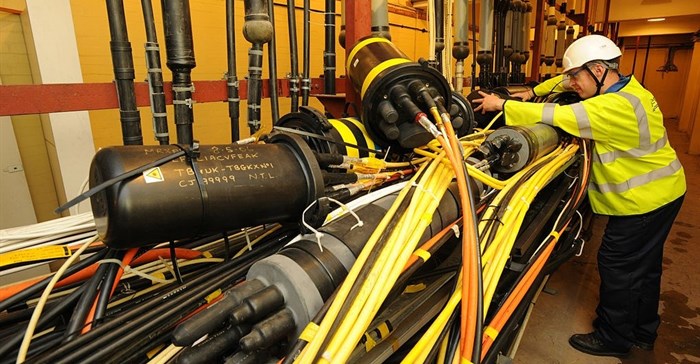
Related
Top stories






More news


Marketing & Media
Ads are coming to AI. Does that really have to be such a bad thing?














In addition to the operational efficiencies brought about by the expansion of the City's network capacity, a number of successes have been achieved, namely:
• The capital budget allocated for this project for the current year is R185 million. In addition, the Western Cape Government allocation stands at R11,8 million
• During the 2014/15 financial year, R48,2 million was made in operating savings
• Avoided costs stood at R106,5 million
• Revenues of R11,4 million were generated
• Financial benefits totalled R176,8 million, together with a capital grant of R10,7 million from the Western Cape Government
The financial benefits - which include the cost savings, the avoided costs, plus the revenue generated - have resulted in a positive financial position for the project of R150 million for each of the past two years. This surplus will be reinvested into further roll-out of the broadband project.
'We are confident that by 2018, the City's Broadband Project will construct a fully functional, municipally-owned fibre-optic network throughout the metro area. The intention is for this network to meet the City's own needs for telecommunication services, as well as to provide infrastructure that other government entities and commercial operators can use - especially in underserved areas which are not conventionally attractive to the private sector,' said the City's Mayoral Committee Member for Corporate Services and Compliance, Councillor Xanthea Limberg.
• City buildings in Maitland, Kraaifontein, Brackenfell, Ndabeni and Khayelitsha will be connected to the Metro Area Network
• 25 City-owned clinics will be connected to the network
• A total of 87 Western Cape Government buildings will be connected upon completion of the final phase
The core route will extend the network footprint to Somerset West, Kuils River, Brackenfell, Kraaifontein, Ndabeni, and Lakeside. The construction of three new switching centres has been completed at Lookout Hill in Khayelitsha, Durbanville and Somerset West. The City is in the process of commissioning the equipment and synchronising this with the core network. The full commissioning and monitoring is scheduled to be completed early next year at the Durbanville Fire Station, Somerset West and a few container switching centres in various areas such as Delft, Gugulethu, Mfuleni and Heideveld.

The City will establish a network node at the Teraco exchange in Newlands, which will open the way to interconnect with over 40 commercial service providers. This will have the added benefit of now enabling businesses to access services hosted at this facility directly via the City's fibre-optic network.
A tariffed service is being provided to five commercial operators and two other government entities, which currently generate an annual revenue of R14,3 million. A total of R23,7 million has been allocated to the Digital Inclusion Project for the 2014/15 financial year.
The Proof of Concept Project intent on providing free wireless internet access to residents went live in January 2014. To date, 185 public Wi-Fi zones have been established at 31 locations through the continued expansion of this successful project. Wi-Fi zones will be installed at about 30 additional locations during this financial year (2015/16).
'Broadband connectivity is fundamental to creating an enabling environment for economic growth, development and inclusion. This is essential in today's environment, as cost-effective and high-speed access to the internet has become a cornerstone of entrepreneurship and economic development. Digital access has often previously been out of reach for a number of communities. A lack of internet access can contribute to missed opportunities that prevent many people from achieving their dreams,' said Limberg.
To this end, the City is exploring the feasibility of offering free Wi-Fi on the fleet of MyCiTi buses. A tender to contract with a service provider was evaluated in September and is now awaiting consideration for award by the City's Supply Chain Management Bid Adjudication Committee. This requires the appointed service provider to offer internet access to passengers at no cost to the City.